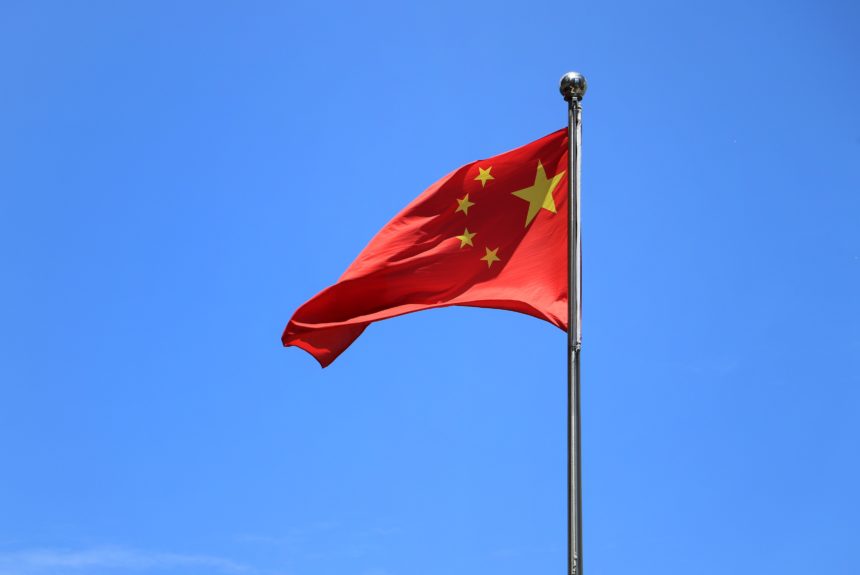By Christopher Barnard & Quill Robinson
In late September, the world’s biggest polluter set a bold new target on climate change. In a speech to the United Nations General Assembly (UNGA), Chinese President Xi Jinping declared that his country aims to achieve carbon neutrality by 2060. In reality, China is attempting to buy good will on the international stage with an increasingly valuable currency: climate rhetoric.
For years, policymakers and scientists have warned that the West’s climate commitments are essentially pointless if rapidly developing nations, in particular China, fail to meet emissions reduction goals. In his speech to the UNGA, President Xi appeared to embrace China’s responsibility to act. Yet, the Chinese Communist Party’s (CCP) development goals at home and ambitions abroad tell a different story.
Today, China contributes 27% of the world’s greenhouse gas emissions, double that of the United States. The CCP’s desire for rapid economic growth has required tremendous energy consumption. China consumes more than half of the world’s coal, and in an effort to boost post-COVID economic recovery, recently announced plans to build an additional 40GW of capacity, its fastest rate of new plant development since 2015. A further 250GW of coal projects are also in the pipeline, more than the United States’ existing coal fleet. Around the world, more than 70% of all coal plants being built are reliant on Chinese funding.
While Chinese leaders do not face the same pressure as their counterparts in democratic nations, popular outcry has shaped CCP environmental policy in the past. In 2013, President Xi announced a “War on Pollution” to clean up Chinese cities’ notoriously dirty air. Whether climate change, a more abstract challenge, is receiving similar domestic attention is hard to say.
What is certain though, is that climate change rhetoric is a growing source of prestige on the international stage. Considerations about climate impacts are shaping national priorities and international relations, and influencing issues from trade to defense policy. In light of President Trump’s abdication of American leadership on the issue, world leaders are looking for new allies in the fight against climate change.
In response to President Xi’s announcement, President Trump said that “those who attack America’s exceptional environmental record while ignoring China’s rampant pollution are not interested in the environment, they only want to punish America and I will not stand for it.” While Trump’s criticism is legitimate, his failure to address climate change head on has weakened America’s strategic position.
China’s superficial willingness to work with other nations on climate policy provides cover for its broader geopolitical strategy and dirty development practices.
China is pushing full steam ahead with its carbon-intensive global agenda. The Belt and Road Initiative (BRI), President Xi’s strategy for increased Chinese investment in Asia, Africa, and Europe, relies heavily on economic influence propped up by fossil fuel development. Not only does the BRI present a significant geopolitical threat to the United States, with China gaining greater control of vital shipping routes, economic leverage over dozens of U.S. allies, and military expansion in strategic locations such as Djibouti, it also means bad news for the global fight against climate change.
China’s efforts to greenwash the BRI are an example of the growing reputational currency of climate rhetoric. In 2017, China launched its Green Investment Principles (GIP), and issued guidance extolling its “experience and practice in ecological civilization and green development.” Yet, in 2018, more than 40% of its energy investments were still in coal. After several countries such as Kenya and Pakistan expressed concern over continued Chinese development of new coal plants, China created a Belt and Road International Green Development Coalition in order to align BRI investments with the UN Sustainable Development Goals. Apart from rhetoric, it is clear that China’s real commitment is to expanding its economic and geopolitical influence over the world. By greenwashing the BRI, China hopes to assuage American and European fears, while obscuring its more sinister intentions. It is little more than a diplomatic power move.
By casting China as the new climate-leader on the global stage, President Xi might also hope to distract the world from other issues dogging his country’s reputation. The Chinese Communist Party is eager to cover up its persecution of the Uyghurs, military expansionism, and its handling of the infectious elephant in the room: COVID-19.
We should be skeptical of China’s promise to become carbon-neutral by 2060. If President Xi is serious about his pledge, it would be fantastic news for the global fight against climate change – but this goal is at odds with China’s real environmental track record. Rather, it appears to be a play for climate prestige at a time when the U.S. has ceded global leadership. China seeks to greenwash its geopolitical expansion, and President Xi is desperate to distract the world from his country’s other transgressions.
Reestablishing American leadership on climate change would build good will among our allies, check China’s greenwashed expansionism, and allow us to guide the response to an issue that will significantly shape geopolitics in the 21st century. Rather than dropping climate from our diplomatic toolkit, or blindly accepting China’s rhetoric, we should show bold leadership and give other countries no choice but to join us in building a cleaner, more prosperous future.
Quill Robinson and Christopher Barnard work at the American Conservation Coalition as Vice President of Government Affairs and National Policy Director, respectively
The views and opinions expressed are those of the author’s and do not necessarily reflect the official policy or position of C3.
